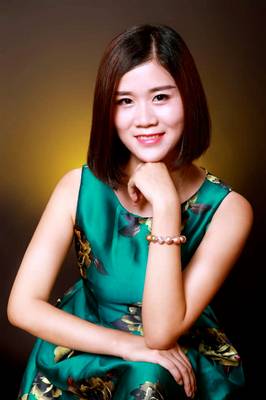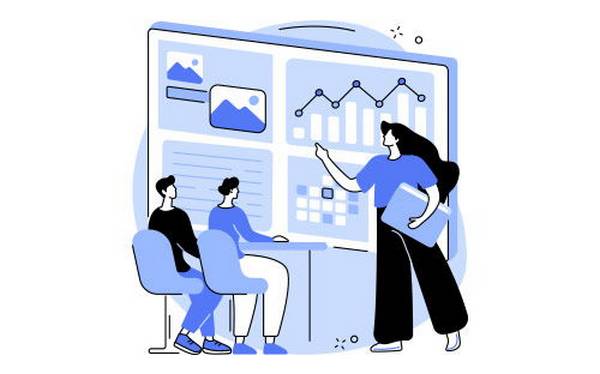??1
?
听力应试技巧与策略
?
听前:略读题目,切入话题,划出重点,预测内容(确定人物身份)
听中:捕捉信息,速记要点,有的放矢,去伪存真(短文独白,首末为主旨句,注意5w,1h)
听后:连贯记忆,前后联系,综合考虑,一锤定音。
2
?
快速记录能力
?
心记:这种能力对于解决听力第1节的问题非常适用。
笔记:1、运用速记符号例如:up(↑)、down(↓)、left(←)、right(→)、equal(=)
2、发明并运用字母的缩写形式ex——expensivelg——large eq——earthquake
?
3
?
预测技巧
?
1、对话预测:在听取对话,尤其是part1-5——shortconversation时,考生可以按照下例wh-问题进行预测:
(1)他们是谁?
(2)他们最可能是什么关系?
(3)对话发生在什么时间?
(4)对话在哪里进行?
(5)对话的目的是?
(6)他们打算做什么?
2、语篇预测:了解讲话者已提供和未提供的信息
3、依靠开篇句预测:英语听力的第一句话通常会透露整篇的主题,所以考生要善于抓住听力材料的首句信息。
例如:americans have a popular saying “time ismoney。”
从这一句开篇句我们可以预测的信息范围:
(1)这是一篇关于时间的话题。
(2)涉及对象是美国人。
4
?
听力特点及高分应试策略
?
话题广泛:购物、就餐、打电话、问路、看病、邀请、询问时间、谈论天气、假日活动、买票等,其内容包含新闻报道、社会生活、教育文化、风土人情、历史地理、科普知识、人物故事等。
高考英语听力一般从以下几方面考查考生对口头语言的理解能力。
1、领略主旨大意,概括话题内容
这类试题在高考听力试题中约占2小题,它要求我们对听到的内容有一个整体的把握和全面的领会,抓住说话者究竟在说什么。任何一段对话或独白都是围绕一个中心展开的,有时主旨大意较明显,有时则需要归纳、概括。常见的提问方式有:
?
what’s the passage mainly about?
what’s the topic of the passage?
what are the two speakers doing?
what are the two speakers talking about?
what is the dialogue/conversation about?
2、捕捉主要细节,确认具体事实
这类试题在高考听力试题中约占8小题。它要求我们听清、听懂与话题中心相关的具体信息,准确理解具体细节,如时间、地点、人物、价钱、数量、目的、原因、结果等。
?
同时,还要求我们对所听到的信息进行简单的处理,比如数字运算、时间顺序、比较筛选、同义转换、因果关系等。理解具体信息有助于把握话题内容,领会说话者意图,这是听力考查的重点内容。常见的提问方式有:
?
where is the woman going?
how does the man pay for the tickets?
what’s wrong with the girl?
when does the woman plan to arrive?
how many hours does tom sleep a day?
why does the man thank the woman?
which of the following is true?
3、推测谈话背景,辨认角色关系
这类试题在高考听力试题中约占5小题,要求我们从谈话或说话的话题和语气来推断出对话双方(或说话人)的职业身份,彼此之间(或与他人)的关系,对话发生的时间、地点或场合等。常见的提问方式有:
where does this conversation take place?
where is the woman speaking?
where did the conversation most likely happen?
when does the dialogue take place?
what’s the probable relationship between the speakers?
4、领会弦外之音,揣摩观点意图
这类试题在高考听力试题中约占5小题,它要求我们从话语中听出其中可能有的“弦外之音”,也就是揣摩说话人的意图、观点或态度等,常见的提问方式有:
what can we learn from theconversation/speakers?
what can we know /learn about the woman?
what does the man mean?
what does the speakers want to tell us?
what is the probable result of the conversation?
5
?
高考听力常考考点归纳与总结
?
1、数字
许多听力材料中涉及数字,例如年代、日期、价格、数量等等,并且会以基数词、序数词、分数、小数、百分比等形式出现,这就要求考生辨别各种形式的数字,还要熟悉数字之间的关系。例如:减价:20%off,special offer,special price,25% discount,sale
?
提示1:如对电话号码、门牌号、航班号、车牌号等,考生可采取听写记录所需数字。
提示2:对判断类数字题需要在听到的两个或两个以上数字中判断符合题意的数字。
提示3:对推断类数字题则通常涉及到简单的数学四则运算,需稍加计算,才能得出正确答案。
2、地点
地点型试题主要考查地点,该项内容的考查多为以where开头的特殊疑问句。
提示1:熟悉、积累常用地名,如国家、首都、大城市、着名的标志性建筑以及山川河流的名称等。
提示2:熟悉、积累与各个地点场所有关的单词、短语、句型和场景。
3、推断
推断型试题不仅包括推断数字和地点,还常考查学生对人物身份、关系,人物态度、情感以及事件原因的推断。一般来说,此类题通常出现在短对话中。
?
6
?
听力常考词汇汇总
?
月份
?
12 months: abb.
january →jan.
february → feb.
march → mar.
april → apr.
may → may
june → jun.
july → jul.
august →aug.
september → sep(t).
october →oct.
november →nov.
december →dec.
?
星期
?
seven days: abb.
sunday → sun.
monday → mon.
tuesday → tue.
wednesday → wed(s).
thursday →thu.
friday →fri.
saturday →sat.
?
货币(钱)
?
u. s dollar 美元 ;
hong kong dollar (hk$)香港元(香港$);
yuan 元 ; rmb¥人民币¥ ;
pound (£) 磅(£);pocket change 零钱 ;
coin 硬币 ; check 支票 ;cash 现金 ;
credit card 信用卡 ; bank 银行
?
交通
?
traffic 交通;plane 飞机;bus 公共汽车;
car 汽车; train 火车;boat 轮船; ship 轮船 ;
taxi 出租车;transportation 交通工具;
timetable 时间表; journey 旅程;
speed 速度 ;subway(underground) 地铁
?
餐馆(restaurant)用语
?
meal 餐; menu 菜单;bill 账单;
order 订单;tip 小费;hamburger 汉堡;
sandwich 三明治;soup 汤; dish 碟子;
beer 啤酒;soft drink 软饮料;
fully booked 全部预订
?
医院(hospital)用语
?
take medicine 吃药; temperature 体温;
pill 药丸 ;headache 头疼; fever 发烧;
blood pressure 血压; waiting room 候诊室
?
宾馆(hotel)用语
?
single room 单人间;
double room 双人间;
room number 客房号;
room service 客房服务;
check in 入住;check out 退房
lift / elevator 升降机/电梯
?
邮局(post office)用语
?
mail 邮寄; deliver 递送; stamp 邮票;
envelope 信封;telegram 电报;postage 邮资
?
机场(airport)用语
?
flight 航班; take off 起飞; land 着陆;
luggage 行李; china airline 中国航空公司;
information desk 服务台; boarding 登机;
customs 海关; departure time 起飞时间;
arrival 到达
?
车站(station)用语
?
round trip 往返; single trip 单程;
sleeping car, 卧车;ticket 车票;
fair 展会; conductor 售票员
?
商店(shop)用语
?
on sale 出售; size 大小; color 颜色;
price 价格;change 零钱; customer 客户;
expensive 昂贵;cheap 便宜 discount 折扣
?
学校(school)用语
?
exam 考试;course 课程;dining hall 食堂;
playground 操场;library 图书馆;lab 实验室
degree 学位;foreign language 外语
?
家庭(family)用语
?
relatives 亲戚;relationship 关系;
reunion 团聚;uncle 叔叔;aunt 阿姨;
family-get-together 家人聚在一起
parents 父母;generation 一代人
?
节日
?
holiday 假日; festival 节日;
mid-autumn day 中秋节
may day 五以劳动节;national day 国庆节
teachers’ day 教师节;
children’s day 儿童节
mother(father)’s day 母亲(父亲)节
new year 新年; christmas day 圣诞节;
thanksgiving day 感恩节; easter 复活节;
halloween 万圣节;valentine’s day 情人节
?
体育
?
basketball 篮球;football 足球;
volleyball 排球;baseball 棒球;
tennis 网球;table-tennis 乒乓球;
badminton 羽毛球; running 跑步;
swimming 游泳;shooting 涉及;
fishing 钓鱼;surfing 冲浪;
skating 滑冰;rock climbing 攀岩;
jumping 跳跃;gym 体操; stadium体育馆
?
娱乐
?
concert 音乐会;show ;exhibition 展览;
film, movie 电影;play 戏剧;theatre 剧院;
museum 博物馆;music 音乐;entertainment 娱乐;
band 乐队; chess 象棋;
amusement park 游乐园;
nightclub 夜总会;picnic 野餐;
bowling 保龄球
?

职业
?
clerk 文员;secretary 秘书;
manager 经理;boss 老板;
professor 教授;lawyer 律师;
businessman 商人; driver 司机;
doctor 医生;nurse 护士;
headmaster; headmistress 校长;
librarian 馆员; engineer 工程师;
technician 技术员;farmer 农民;
policeman policewoman 警察;
coach 教练
?
健康(问题)
?
health 健康;gain weight 增重;
lost weight 减重;keep fit 保持健康;
balanced diet 饮食均衡;
smoking 吸烟;aids 艾滋;
?
时间
?
century 世纪;year 年;month 月;week 周;
day 日;hour 时; minute 分;second 秒;
yesterday 昨天;today 今天;tomorrow 明天;
weekend 周末; morning 早晨;afternoon 中午;
evening 晚上;night 夜晚
?
科目
?
chinese 语文; mathematics 数学;
english 英语;physics 物理;
chemistry 化学;biology 生物;
politics 政治; history 历史;
geography 地理;
arts 艺术;music 音乐;
physical education ;(p e). 体育
?
国籍(nationality)
?
chinese 中国人;japanese 日本人;
german 德国人;french 法国人;
american 美国人;australian 澳大利亚人;
englishman 英国人 
; russian 俄罗斯人;
new-zealande 新西兰人;canadian 加拿大人;
italian 意大利人; spanish 西班牙人
?
主要国家、地区、城市
?
the people’s republic of china 中华人民共和国;
the united states of america 美利坚合众国;
usa 美国;new york 纽约;
chicago 芝加哥;japan 日本;
the united kingdom of great britain and northern ireland大不列颠及北爱尔兰联合王国;
london 伦敦;france法国;
paris 巴黎;germany 德国; berlin 柏林;
australia 澳大利亚; sydney 悉尼;
tokyo 东京;canada 加拿大;
italy 意大利;rome 罗马;
spain 西班牙; russia 俄罗斯;
moscow 莫斯科;europe 欧洲
?
数(量)词
?
million 百万;thousand 千;hundred 百;
dozen一打;score 20个; decade 十年;
first 第一;second 第二;third 第三;forth 第四;
fifth第五;eighth 第八; ninth 第九;
twelfth 第十二;twentieth 第二十
?
科技
?
computer 电脑;surf the internet 上网;
technology 科技;science 科学;
information 信息;e-mail 电子邮件;
download 下载; on line 在线;
off line 离线; clone 克隆; robot 机器人;
cell phone/ mobile phone 手机;
satellite 卫星; spaceship宇宙飞船;fax 传真
?
clothes(衣物)
?
clothing 衣服;dress 礼服;suit 西装;
evening dress 晚礼服; jacket 夹克;shirt 衬衫;
skirt 短裙;t-shirt 汗衫;trousers; pants 裤子;
shorts内裤; blouse 上衣;sweater毛衣;coat外套;
overcoat 大衣; tie 领带; socks 袜子;
stockings长袜; shoes 鞋子; boots靴子;
hat ;cap 帽子;uniform 制服
?
food and drinks(食物与饮料)
?
hamburger汉堡;sandwich(es) 三明治;
bread 面包;flour 面粉;milk 牛奶;
pork 猪肉;beef 牛肉;lamb 羊肉;
chicken鸡肉; fish 鱼;rice 米饭;
vegetable 蔬菜; black-tea 红茶;
green-tea 绿茶;coffee 咖啡;
black coffee 黑咖啡;wine 葡萄酒;
alcohol 酒;soft drinks 软饮料????
 微信扫一扫打赏
微信扫一扫打赏
 支付宝扫一扫打赏
支付宝扫一扫打赏


